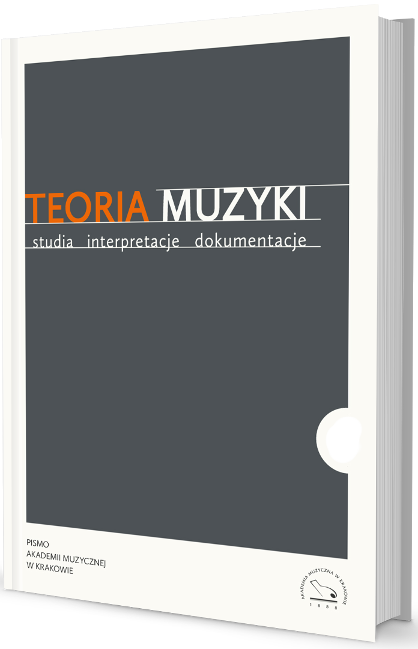O monologu i dialogu w duecie fortepianowym
Monologue and dialogue in piano duets
Author(s): Leszek PolonySubject(s): Music
Published by: Akademia Muzyczna w Krakowie im. Krzysztofa Pendereckiego
Keywords: piano duet; Wolfgang Amadeus Mozart; Franz Schubert;dialogue;
Summary/Abstract: The term “piano duet” in the title refers to a musical work that may be written for four hands, as well as one written for two pianos (a.k.a. “piano duos”). The latter rather calls for a concert hall. Its assets include the possibility to fully use the sound scale of both instruments, and also to achieve a full partnership of both performers – an equilibrium of both parts, their superimposition and mutual, alternate variating. Alfred Einstein called it the “play of dialogue”, relating to Mozart’s Sonata for two pianos in D Major KV 448.When dealing with a “four hand” duet, each performer has at their disposal, roughly, just one half of the keyboard – with different sound characteristics than the other. Therefore the aesthetic goal of two performers playing together on one keyboard is often not a dialogue and exchange of thought, but a lyrical monologue of a most intimate character, as in Franz Schubert’s Fantasia in F minor, D. 940 (Op. posth. 103).
Journal: Teoria Muzyki. Studia, Interpretacje, Dokumentacje
- Issue Year: VIII/2019
- Issue No: 14
- Page Range: 83-90
- Page Count: 8
- Language: Polish

